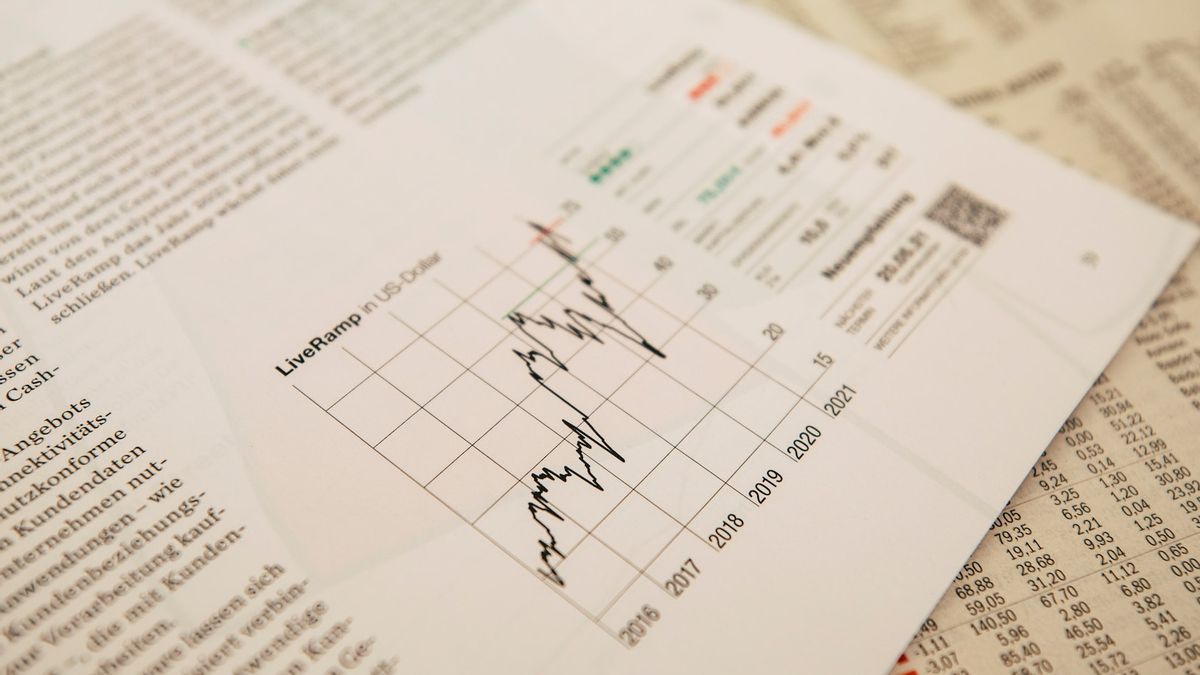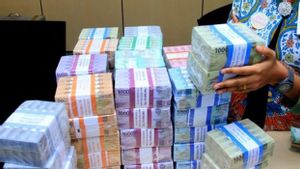JAKARTA - Deputy Chairman of the Board of Commissioners of the Financial Services Authority (OJK) Mirza Adityaswara said the domestic economy remains solid amid the dynamics of the global economy so that it becomes Indonesia's capital to remain optimistic about undergoing 2023.
"In 2023, of course, we need to welcome the spirit of optimism amid the uncertainty of the global situation, both economic and geopolitical threats," Mirza said in a Webinar Merdeka Finansial with Islamic Financial Products, quoted from Antara, Thursday, March 30.
Mirza said that challenges that are not easy in 2023 need to be faced with all domestic stakeholders, including the risk of high interest rates to reduce inflation rates.
The challenge also includes the threat of inflation due to war uncertainty between Russia and Ukraine, which is still lifting inflation in several parts of the world as well as the impact of weakening the global economy which has an impact on pressure on Indonesia's export performance.
He said that in the midst of the dynamics of the global economy, indicators of the domestic economy have proven to be solid. This is the best capital for the Indonesian people to be more confident in responding to the 2023 challenges, although they must continue to apply policies that create multiplier effects prudently on economic growth and the financial sector.
On an annual basis, Indonesia's economic growth in 2022 will grow solidly by 5.31 percent. In the banking sector, bank credit grew by 10.5 percent and third party funds grew by eight percent in January 2023.
In the capital market sector, the growth in the number of investors continues to reach 10.6 million investors as of February 24, 2023, increasing quite rapidly compared to 2021 and 2022.
The non-bank financial industry sector also showed a positive trend where insurance premium income in January 2023 grew 5.22 percent year on year (yoy), pension fund assets grew 5.48 percent.
SEE ALSO:
Mirza said financing receivables in January 2023 grew 14.5 percent yoy. The increase was mainly driven by working capital and investment financing, which grew by 33.7 percent yoy and 20.4 percent yoy, respectively. In addition, peer to peer lending fintech financing also grew 63 percent yoy.
In the condition of global uncertainty amid efforts to recover the economy, he said the Islamic financial sector in Indonesia proved resilient and was able to survive the difficult situation with total assets outside of Islamic shares of Rp2,312 trillion at the end of November 2022, growing 15 percent from the previous year.
This shows that the Islamic financial sector is a promising sector for the economy and the people of Indonesia.
"We must take advantage of the performance of the positive economic and financial indicators of sharia growing as well as possible as a momentum to plan finances to lead a financially independent life," he said.
The English, Chinese, Japanese, Arabic, and French versions are automatically generated by the AI. So there may still be inaccuracies in translating, please always see Indonesian as our main language. (system supported by DigitalSiber.id)














